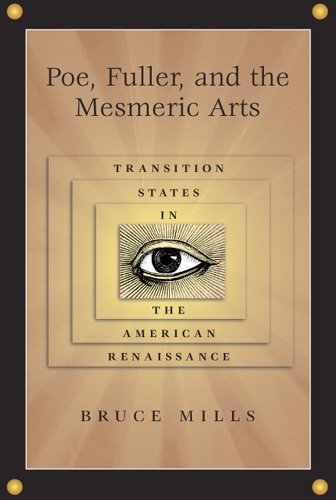(Ebook) Poe, Fuller, and the Mesmeric Arts: Transition States in the American Renaissance by Bruce Mills ISBN 9780826216106, 0826216102
In Poe, Fuller, and the Mesmeric Arts, Bruce Mills examines how the writings of Edgar Allan Poe and Margaret Fuller draw from representations of and theories concerning animal magnetism, somnambulism, or hypnosis rendered in newspapers, literary and medical journals, pamphlets, and books. Although some recent studies have begun to consider the relevance of animal magnetism or mesmerism to nineteenth-century literature and culture, this book moves more deeply into what might be termed the canon of mesmeric study. Through the works of Poe and Fuller, Mills argues, we can more fully understand the era’s response to dynamic cultural forces. Rather than simply using “American” subject matter as demanded in early calls for a national literature, Poe and Fuller, as well as Lydia Maria Child and Walt Whitman, increasingly rooted their epistemology and literary forms in psychological findings that accommodated the fluidity of democratic realities and principles. For many influential writers of the period, then, the call for a national literature had evolved into attention to the state of one’s own mind, to those manifestations of the highest states of mind, and to the effects of literary choices on readers’ psychological states. In the history and philosophy of mesmeric consciousness, Poe, Fuller, and others discerned those principles that offered the promise of answering a central question: how does one create an aesthetic that effectively explores, accommodates, and fosters the harmonious interplay of transition states in a democratic culture? Given its content and approach, Poe, Fuller, and the Mesmeric Arts should evoke interest among Poe and Fuller scholars as well as teachers, students, and historians intent upon understanding the emerging democratic sensibilities of the American Renaissance.
*Free conversion of into popular formats such as PDF, DOCX, DOC, AZW, EPUB, and MOBI after payment.


